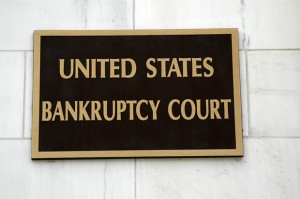Bankruptcy Information
 Bankruptcy is a legal process which allows individuals to eliminate or reorganize some or all of their debts. The bankruptcy process is set out in The Bankruptcy Code and in the Federal Rules of Bankruptcy Procedure. The most common types of bankruptcy are filed under Chapter 7 and Chapter 13 of The Bankruptcy Code.
Bankruptcy is a legal process which allows individuals to eliminate or reorganize some or all of their debts. The bankruptcy process is set out in The Bankruptcy Code and in the Federal Rules of Bankruptcy Procedure. The most common types of bankruptcy are filed under Chapter 7 and Chapter 13 of The Bankruptcy Code.
Chapter 7 bankruptcy is sometimes referred to as a liquidation case. The debtor’s property is assigned a value and listed on bankruptcy schedules. Exemptions, laws that protect property from seizure by creditors, are applied to the debtor’s property. Any property protected by the exemptions will remain the debtor’s property after the bankruptcy case is closed. However, if there is property that cannot be protected by the exemptions available to the debtor (nonexempt property), then the trustee may take this property, liquidate it, and pay the proceeds to the creditors in the case. Chapter 7 bankruptcy cases usually last about 3 to 5 months.
Chapter 13 bankruptcy is sometimes called a reorganization case. Debtors propose a plan to reorganize their debts to a trustee and their creditors. The plan states whether the debtor intends to keep secured property, how secured and priority creditors will be paid, and whether the debtor will provide payment to unsecured creditors. Chapter 13 plans require that debtors make payments to a trustee for three to five years. The trustee takes this money and pays it to the creditors according to the terms set out in the plan. The process of getting a Chapter 13 plan approved by the court is called confirmation. Creditors who don’t like how they are being treated in a Chapter 13 plan can object to confirmation of the plan. Once all objections are resolved, whether by agreement or by hearing, the plan may be confirmed. Plans usually last between three and five years, and once the final payment is made the debtor receives a discharge of their remaining dischargeable debt.
This information applies to bankruptcy cases filed in Dallas, Plano, and other north Texas communities. Please contact a local bankruptcy lawyer for more information about filing bankruptcy where you live.